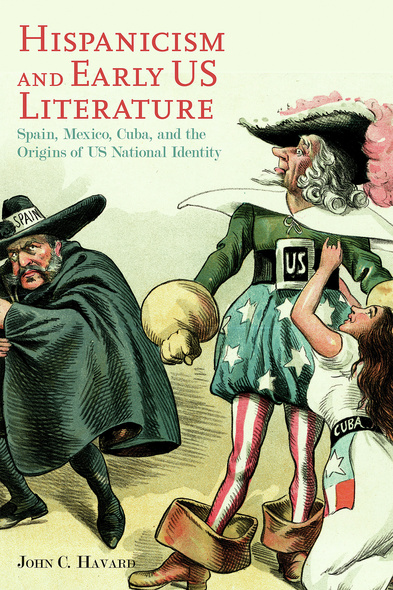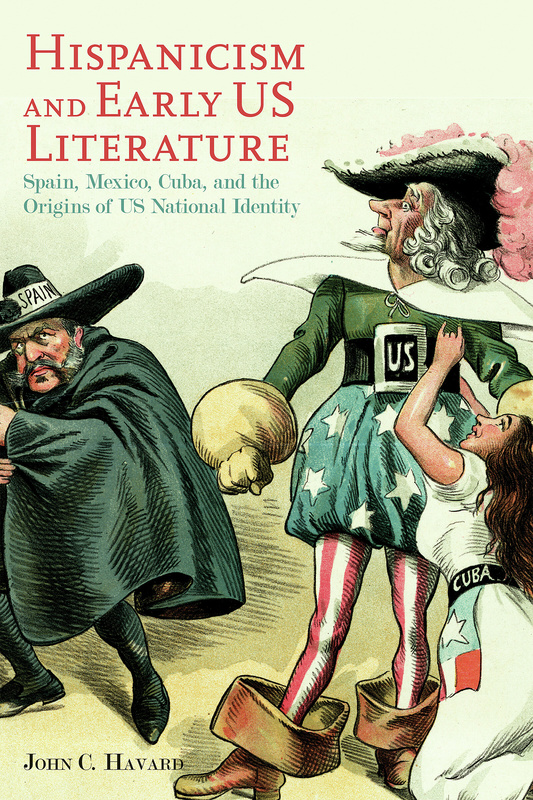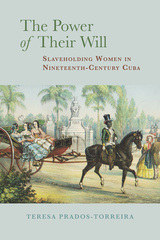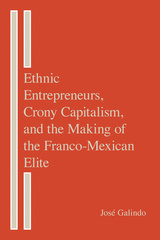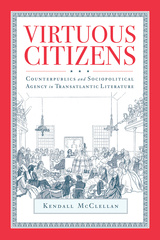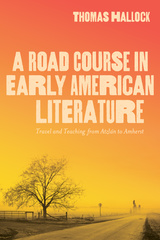Hispanicism and Early US Literature
Spain, Mexico, Cuba, and the Origins of US National Identity
University of Alabama Press
Well-researched analysis of the impact that Spain and Spanish America had on antebellum literature in the United States.
In Hispanicism and Early US Literature, author John C. Havard posits that representations of Spain, Spanish America, Spanishness, and Spanish Americanness are integral elements in the evolution of early national and antebellum US literature. He argues that Spanish-speaking countries have long held a broad fascination for Americans and that stock narratives regarding these peoples were central to the period’s US literature.
Beginning with the work of eighteenth-century literary nationalists such as Joel Barlow, US literature has been drawn to reflect on Spain and Spanish America. Such reflection was often inspired by geopolitical conflicts such as US expansion into Spanish Louisiana and the US-Mexican War. Havard terms the discourse emerging from these reflections “Hispanicism.” This discourse was used to portray the dominant viewpoint of classical liberalism that propounded an American exceptionalism premised on the idea that Hispanophone peoples were comparatively lacking the capacity for self-determination, hence rationalizing imperialism. On the conservative side were warnings against progress through conquest.
Havard delves into selected works of early national and antebellum literature on Spain and Spanish America to illuminate US national identity. Poetry and novels by Joel Barlow, James Fenimore Cooper, and Herman Melville are mined to further his arguments regarding identity, liberalism, and conservatism. Understudied authors Mary Peabody Mann and José Antonio Saco are held up to contrast American and Cuban views on Hispanicism and Cuban annexation as well as to develop the focus on nationality and ideology via differences in views on liberalism.
More than just a work of literary criticism, there is a substantial amount of cultural and political history discussed. Havard’s use of archival sources such as political articles and personal correspondence elucidates not just literary genres and movements such as early national epic poetry, abolitionist fiction, and the American Renaissance, but also US culture writ large.
In Hispanicism and Early US Literature, author John C. Havard posits that representations of Spain, Spanish America, Spanishness, and Spanish Americanness are integral elements in the evolution of early national and antebellum US literature. He argues that Spanish-speaking countries have long held a broad fascination for Americans and that stock narratives regarding these peoples were central to the period’s US literature.
Beginning with the work of eighteenth-century literary nationalists such as Joel Barlow, US literature has been drawn to reflect on Spain and Spanish America. Such reflection was often inspired by geopolitical conflicts such as US expansion into Spanish Louisiana and the US-Mexican War. Havard terms the discourse emerging from these reflections “Hispanicism.” This discourse was used to portray the dominant viewpoint of classical liberalism that propounded an American exceptionalism premised on the idea that Hispanophone peoples were comparatively lacking the capacity for self-determination, hence rationalizing imperialism. On the conservative side were warnings against progress through conquest.
Havard delves into selected works of early national and antebellum literature on Spain and Spanish America to illuminate US national identity. Poetry and novels by Joel Barlow, James Fenimore Cooper, and Herman Melville are mined to further his arguments regarding identity, liberalism, and conservatism. Understudied authors Mary Peabody Mann and José Antonio Saco are held up to contrast American and Cuban views on Hispanicism and Cuban annexation as well as to develop the focus on nationality and ideology via differences in views on liberalism.
More than just a work of literary criticism, there is a substantial amount of cultural and political history discussed. Havard’s use of archival sources such as political articles and personal correspondence elucidates not just literary genres and movements such as early national epic poetry, abolitionist fiction, and the American Renaissance, but also US culture writ large.
By analyzing and defining the emergence of US literature, this book builds on recent studies that have questioned the exclusively national focus of a substantial body of academic work. In the process, the author significantly expands and enriches the coverage of sources that had been neglected in surveys and monographs on the literature of antebellum America. It shows quite clearly that some of the neglected sources are revealing of a transnational outlook to define national identity, and it reveals how this outlook relates to an imperial, yet ironically liberal, impulse. The author also very conclusively demonstrates that the Spanish-American War of 1898 was not the beginning, but rather the culmination of a growing imperialist ethos.'
—Iván Jaksić, author of The Hispanic World and American Intellectual Life, 1820–1880
‘Hispanicism and Early US Literature offers, ultimately, a formidable critique of how Hispanicist discourses shaped and continue to shape narratives of US liberal exceptionalism across distinct times, political dilemmas, and transnational contexts.’
—Intertexts
Hispanicism is a well-researched study that explores US literary responses to Spain and Spanish America during an important period of national identity formation.'
— Kirsten Gruesz, author of Ambassadors of Culture: The Transamerican Origins of Latino Writing
John C. Havard is an associate professor in the Department of English and Philosophy at Auburn University at Montgomery.

